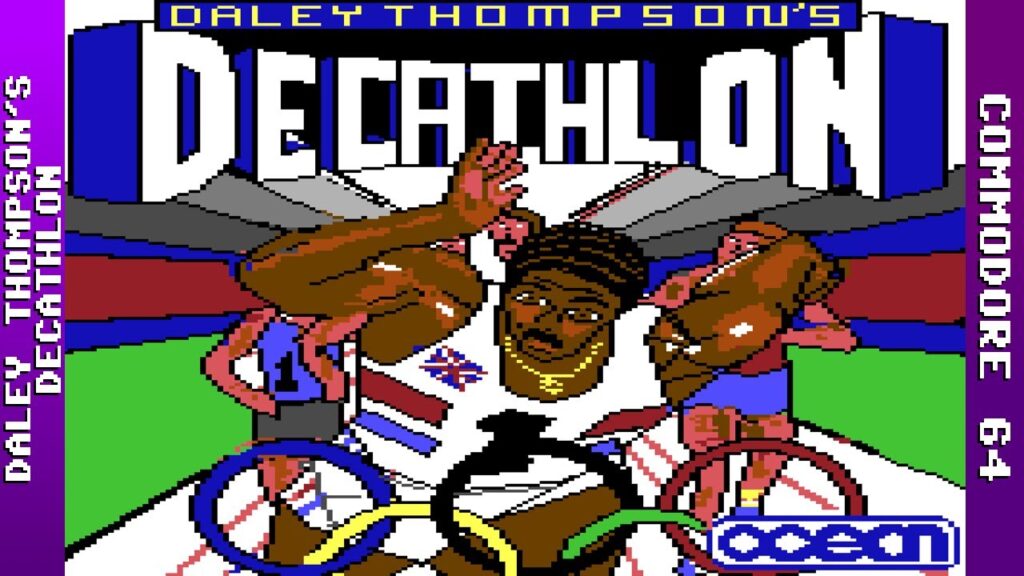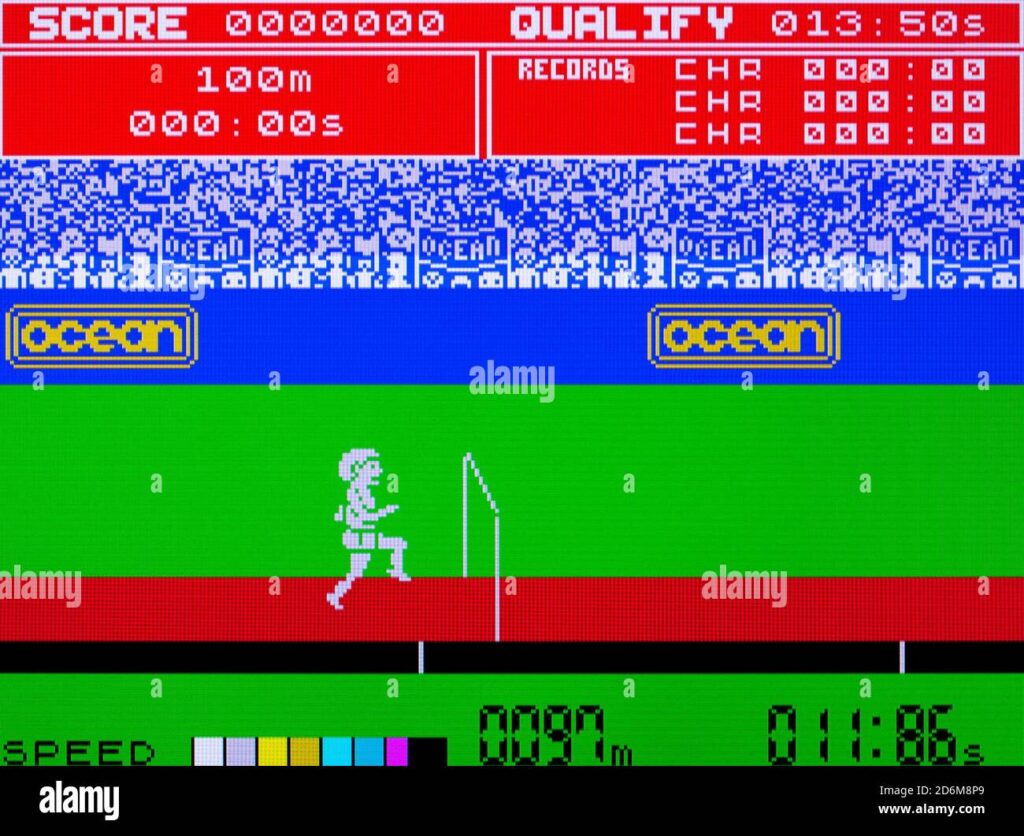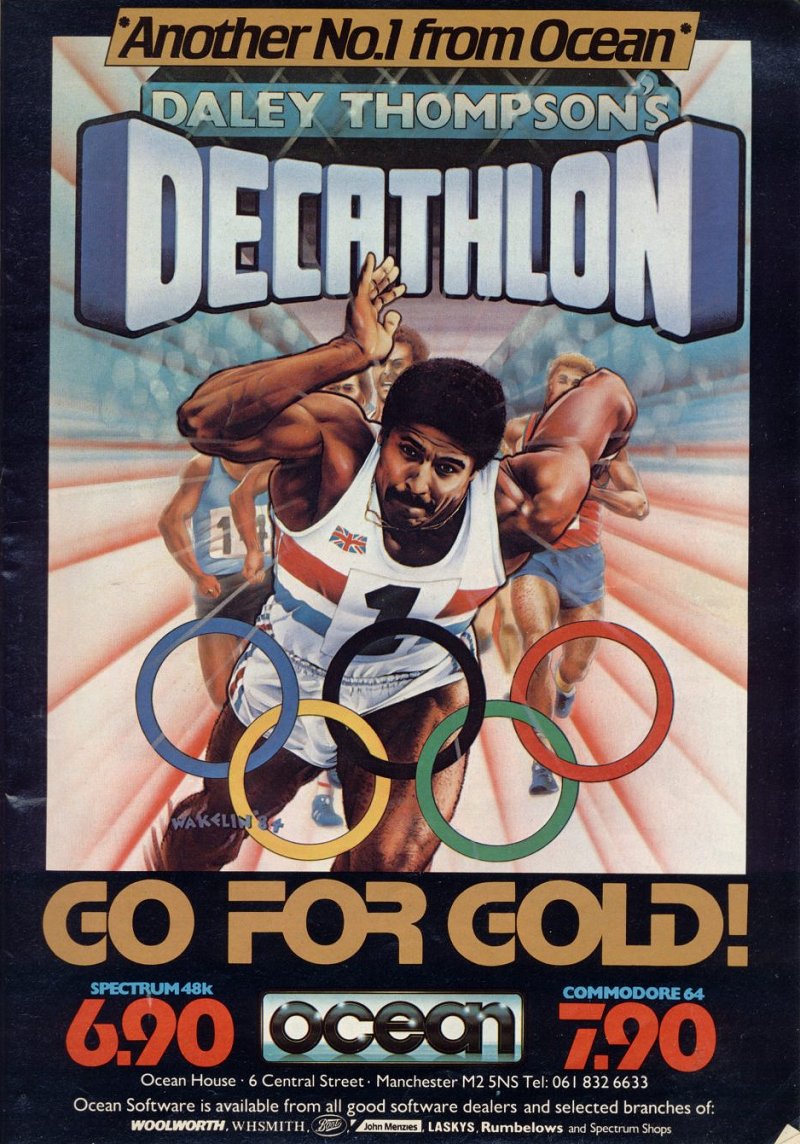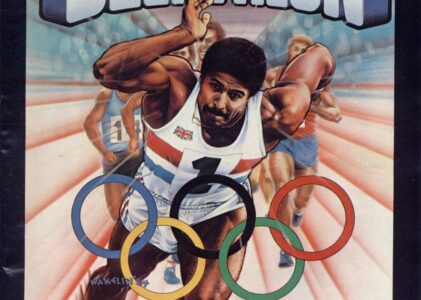The Legendary Track-and-Field Challenge that Defined a Generation
Daley Thompson’s Decathlon, released in 1984, is a monumental title in the world of sports video games. This iconic game, named after the British decathlete Daley Thompson, took the gaming community by storm during the golden age of video gaming. In this article, we will dive deep into the world of Daley Thompson’s Decathlon, exploring its genre, platforms, gameplay, key features, strategies, cheats, reviews, cultural impact, sequels, and similar games. Let’s embark on a nostalgic journey back to the 1980s and relive the excitement of this classic.
Genre and Platforms
Genre: Sports Simulation
Daley Thompson’s Decathlon falls under the sports simulation genre. It offers players a chance to experience the thrills and challenges of one of the most demanding athletic competitions in the world, the decathlon. This genre places a strong emphasis on realistic representation of sports, and this game was no exception.

Platforms:
- Commodore 64: The game was initially released on the Commodore 64 platform, which was a hugely popular home computer during the 1980s.
- ZX Spectrum: Shortly after its Commodore 64 release, it made its way to the ZX Spectrum, another beloved platform of that era.
- Amstrad CPC: Amstrad CPC users also had the privilege of enjoying this game.
- Atari 8-bit: The Atari 8-bit family of computers received its own version of the game.
- MSX: It was also available for MSX, a standardized home computer architecture popular in Asia and Europe.
- Sega Master System: Later on, the Sega Master System saw a release of the game, bringing its engaging gameplay to the console audience.
Gameplay
The Decathlon Challenge
Daley Thompson’s Decathlon centers around the decathlon, a grueling two-day competition consisting of ten track-and-field events. Players step into the shoes of Daley Thompson himself, aiming to secure victory in all ten events.
The ten events are as follows:
- 100 Meters: A sprint race where speed and timing are crucial.
- Long Jump: Test your jumping skills as you leap as far as possible.
- Shot Put: The strength and timing of your throw are vital in this event.
- High Jump: A combination of timing and technique will help you clear higher heights.
- 400 Meters: Endurance and pacing are key in this challenging race.
- 110 Meters Hurdles: Navigate a series of hurdles with precise timing.
- Discus: Master the technique to throw the discus to a great distance.
- Pole Vault: Timing and technique are essential as you clear increasingly higher bars.
- Javelin: Test your throwing precision and strength in this event.
- 1500 Meters: A grueling test of endurance and strategy that concludes the decathlon.
Controls
The game’s controls were simple yet effective, relying on keyboard input for most platforms. Players used the keyboard to control the speed and timing of their athlete in various events. Success required a combination of rapid key presses and precise timing, which added to the game’s challenge and excitement.

Key Gameplay Features
Realistic Simulation
Daley Thompson’s Decathlon was praised for its realistic simulation of the decathlon events. The game’s graphics and animations, while basic by today’s standards, were cutting-edge at the time and provided players with a surprisingly immersive experience.
Multiplayer Mode
One of the standout features of the game was its multiplayer mode. Players could compete head-to-head with a friend, adding a competitive edge that made the game even more enjoyable. The heated battles for supremacy in each event were a common sight in households with this game.
Progressive Difficulty
The game’s difficulty increased as players progressed through the decathlon. This progressive difficulty curve kept players engaged and motivated to improve their skills, as winning the decathlon became increasingly challenging.
Record Tracking
Daley Thompson’s Decathlon featured a record tracking system, allowing players to keep tabs on their personal bests and compete against their own records. This feature encouraged players to continue playing and striving for improvement.
Strategies and Cheats
Mastering Daley Thompson’s Decathlon required not only skill but also some well-honed strategies. Here are a few tips for success:
- Practice Makes Perfect: Like any sports simulation game, practice is key. Spend time perfecting your timing and technique in each event.
- Energy Management: Managing your athlete’s energy is crucial in the decathlon. Push too hard too early, and you’ll run out of steam. Pace yourself strategically in longer events like the 1500 meters.
- Multiplayer Tactics: In multiplayer mode, mind games can be just as important as physical skills. Try to throw off your opponent’s rhythm with well-timed keystrokes.
- Know the Events: Understanding the nuances of each event is essential. Whether it’s the angle of your javelin throw or the rhythm of your pole vault, knowledge is power.
As for cheats, the game was relatively straightforward, and there weren’t many widely known cheats. However, some players discovered keyboard combinations that could provide a slight advantage, such as a turbo mode for rapid keypresses. These cheats, while not integral to the game, added an extra layer of intrigue for those looking for shortcuts to victory.
Reviews and Cultural Impact
Critical Acclaim
Daley Thompson’s Decathlon received widespread critical acclaim upon its release. Critics lauded its realistic portrayal of decathlon events, engaging gameplay, and competitive multiplayer mode. The game’s innovative approach to sports simulation was a breath of fresh air in the gaming world, earning it high praise.
Cultural Phenomenon
The game quickly became a cultural phenomenon, especially in the United Kingdom, where Daley Thompson was a national hero. It was not uncommon to find kids and adults alike huddled around their computers, competing in their own mini decathlons. The game’s popularity extended well beyond its initial release, and it remained a cherished classic for years to come.
Inspiring Future Athletes
Daley Thompson’s Decathlon had a surprising side effect—it inspired a generation of young athletes. Many players who enjoyed the game in their youth went on to pursue athletics in real life, some even becoming decathletes themselves. It’s a testament to the game’s ability to ignite passion and interest in sports.
Sequels
The success of Daley Thompson’s Decathlon led to the development of several sequels and spin-offs:
- Daley Thompson’s Super-Test (1985): This game expanded on the original concept, offering a wide range of sports challenges beyond just the decathlon events.
- Daley Thompson’s Olympic Challenge (1988): Building on the Olympic theme, this game featured various Olympic events, further showcasing Thompson’s athleticism.
- Daley Thompson’s Olympic Summer Games (1992): Released for various platforms, this game allowed players to compete in a variety of summer sports at the Barcelona Olympics.
- Daley Thompson’s Track & Field (2000): A more modern take on the classic gameplay, this version featured updated graphics and controls.
- Daley Thompson’s Decathlon (iOS/Android – 2013): In the age of mobile gaming, a revamped version of the classic was released for smartphones, introducing the game to a new generation.
Examples of Similar Games
While Daley Thompson’s Decathlon is iconic in its own right, it was not the only sports simulation game of its time. Several other titles in a similar vein captured the imaginations of gamers:
- Track & Field (1983): Konami’s Track & Field, also known as Hyper Olympic in Japan, was a fierce competitor. It featured a range of track-and-field events and became famous for its button-mashing gameplay.
- Summer Games (1984): Part of the Epyx Games series, Summer Games offered a diverse set of Olympic events and emphasized multiplayer competition.
- Winter Games (1985): Another entry in the Epyx Games series, Winter Games brought the excitement of the Winter Olympics to players’ screens.
- California Games (1987): This game took a more laid-back approach, featuring a collection of unconventional sports like surfing, skateboarding, and frisbee.
- Athens 2004 (2004): A more modern take on the decathlon genre, this game was released in conjunction with the 2004 Athens Olympics and featured updated graphics and controls.
In conclusion, Daley Thompson’s Decathlon (1984) stands as a timeless classic in the world of sports simulation video games. Its realistic portrayal of the decathlon events, engaging gameplay, and multiplayer mode made it a beloved title that transcended generations. It not only entertained players but also inspired a passion for athletics in many. With sequels and similar games continuing to pay homage to its legacy, Daley Thompson’s Decathlon remains an enduring symbol of the golden age of video gaming.
So, dust off your old Commodore 64 or fire up an emulator, and relive the glory days of Daley Thompson’s Decathlon. Can you conquer the decathlon and secure your place in gaming history?

